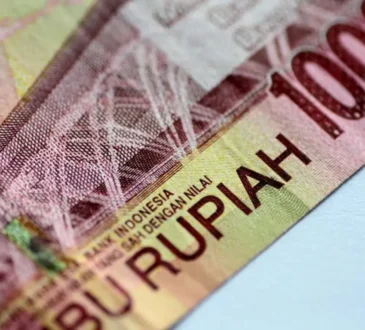Can Singapore’s property market withstand US tariffs, trade wars and global market mayhem?
While the tariffs do not directly impact Singapore’s housing market, their knock-on effects on GDP growth and employment could weigh on home-buying sentiment (Photo: Samuel Isaac Chua/EdgeProp Singapore)
In the Netflix series The Residence, a murder mystery set in the private quarters of the White House, there was one clear victim: the chief usher. In US President Donald Trump’s world-stage drama – the “Liberation Day” announcement on April 2 – the victim was no longer fictional but real and far more consequential: the global order.
“The era of rules-based globalisation and free trade is over,” Singapore Prime Minister Lawrence Wong said in an April 4 video address on the implications of the US tariffs. “We are entering a new phase — one that is more arbitrary, protectionist and dangerous.”
In a Ministerial Statement delivered on April 8, Wong said that while Singapore “may or may not” fall into recession this year, the economy would be significantly affected. The US imposed tariffs on all imports, including a 10% tariff on goods from Singapore. The tariffs were scheduled to take effect on April 9, but Trump reversed course, granting all countries except China a 90-day reprieve.
Read also: UOBKH reiterates buys for KORE and Prime following return to office mandate


PM Wong: The era of rules-based globalisation and free trade is over. We are entering a new phase — one that is more arbitrary, protectionist and dangerous (Photo: Prime Minister’s Office website)
“This new environment will be detrimental to Singapore’s future growth prospects,” Prime Minister Wong stated. “So the fact that we are at the lowest tier of the tariffs is no comfort.”
The Ministry of Trade and Industry is reviewing its 2025 growth forecast of 1% to 3%, with a likely downward revision. “Slower growth will mean fewer job opportunities and smaller wage increases for workers,” Wong warned. “And if more companies face difficulties or relocate operations back to the US, we will see higher retrenchments and job losses.”
To prepare for potential fallout, the government has established a task force to support households and businesses if the situation worsens.


If the trade war escalates, the HDB and private mass-market segments are expected to be the least affected, given their strong support from domestic demand (Photo: Samuel Isaac Chua/EdgeProp Singapore)
Spillover into real estate markets
The global stock market rout underscores widespread concerns about how US tariffs and retaliatory moves could harm the global economy — “which is already seeing sluggish growth,” notes Ismail Gafoor, CEO of PropNex.
The stock market volatility could spill over into real estate markets, says Sing Tien Foo, Provost’s Chair Professor at the Department of Real Estate, National University of Singapore (NUS) Business School. At the macro level, investors may reallocate capital away from volatile equities towards safer, more stable assets such as gold and bonds, he adds.
“Some may choose to park their wealth in Singapore properties, which are widely regarded as safe-haven assets,” says Christine Sun, chief researcher and strategist at OrangeTee Group.
According to Marcus Chu, CEO of ERA Singapore, the nation’s stable, well-regulated market could attract investors seeking safety and long-term growth potential. “However, the 60% Additional Buyer’s Stamp Duty (ABSD) imposed on foreign buyers continues to exert a chokehold on foreign demand in the residential market,” he adds.


Many developers currently need to replenish their land supply, and there could even be stronger interest for sites such as Chencharu Close (pictured), Dunearn Road, Hougang Central and Telok Blangah Road (Photo: Samuel Isaac Chua/EdgeProp Singapore)
While the tariffs do not directly impact Singapore’s housing market, their knock-on effects on GDP growth and employment could weigh on home-buying sentiment, says Tricia Song, CBRE head of research for Singapore and Southeast Asia.
In this environment, potential buyers are likely to become more cautious, Song adds, avoiding overstretching their budgets, which may slow the pace of price growth in the coming months.
“Some may postpone their purchases until the dust settles,” says ERA’s Chu. Still, he views this as a temporary reaction. “Overall, the property market remains calm and rational.”
Chu also notes that most residential buyers adopt a medium- to long-term perspective, with decisions driven more by genuine housing needs than speculation.


Singapore’s private residential property market has historically demonstrated resilience through various crises, most recently during the Covid-19 pandemic, rising 39% from 1Q2020 to 1Q2025 (Photo: Samuel Isaac Chua/EdgeProp Singapore)
Buying dip
The property market is highly sentiment-driven, says Gafoor. In the short term, some prospective buyers may stay on the sidelines, preferring to wait for more clarity on the tariffs-related market impact before taking action. “To this end, we may potentially see buying interest subside slightly should there be prolonged uncertainties, and this could weigh on home sales volume,” adds Gafoor.
Read also: Joe Biden expected to be friendlier to foreign investors, property market observers say
However, prices are generally expected to remain stable. Gafoor points out that most homeowners and established developers have strong financial holding power and are unlikely to reduce prices to achieve a sale.
Past macroprudential cooling measures — such as the Total Debt Servicing Ratio (TDSR), the 4% stress-test interest rate, ABSD, and Seller’s Stamp Duty (SSD) — along with Singapore’s high savings rate, have placed households in a strong position to weather current market uncertainties, he adds.
According to the Department of Statistics Singapore, the personal savings rate stood at 37.6% in 4Q2024, up from 32% in the previous quarter.


The construction sector is currently experiencing very high demand, driven by numerous ongoing housing projects and major infrastructure initiatives such as Changi Airport Terminal 5 (Photo: Changi Airport Group)
Construction costs, calibrated housing supply
The construction sector is currently experiencing strong demand, driven by numerous ongoing housing projects and major infrastructure initiatives, including Changi Airport Terminal 5, the expansion of Marina Bay Sands Integrated Resort and various public housing developments and upgrading works, says OrangeTee’s Sun. “Major geopolitical volatility could lead to supply chain disruptions, which may, in turn, impact the housing market,” she adds.
Developers are also under pressure from elevated construction costs and firm land prices, observes PropNex’s Gafoor. While developers are unlikely to reduce prices, they are expected to price units more sensitively amid market uncertainties — potentially creating buying opportunities for prospective buyers, he adds.
Singapore’s private residential property market has historically demonstrated resilience through various crises, most recently during the Covid-19 pandemic. Since then, the URA Private Property Price Index (PPI) has risen by nearly 39% between 1Q2020 and 1Q2025 (based on flash estimates).
“Singapore’s land scarcity and the government’s well-calibrated housing supply help underpin property prices,” Gafoor notes. He adds that the slew of cooling measures introduced over the years has curbed speculation and contributed to a more stable market.
PropNex is, therefore, maintaining its 2025 forecast for private new home sales (excluding executive condominiums) at between 8,000 and 9,000 units. Private resale transactions are expected to reach 14,000 to 15,000 units for the full year.


The launch of One Marina Gardens is proceeding as planned on April 12 (Photo: Kingsford Group)
Push to market
To mitigate future risks amid expectations of worsening economic conditions, developers may bring forward their launches, reckons Sing of NUS Business School.
Developers are required to sell out their projects within five years to qualify for the ABSD remission. They are, therefore, motivated to push their projects to market as soon as all necessary approvals are obtained, says Lee Sze Teck, senior director of data analytics at Huttons Asia.
Indeed, some developers are sticking to their scheduled project launches. “At this point, One Marina Gardens’ launch will go ahead this weekend [April 12] as planned,” confirms a spokesperson for Kingsford Group, developer of the 937-unit project in Marina South.
Similarly, Qingjian Realty and its joint venture partner, Forsea Holdings, are moving forward with the April 12 launch of the 358-unit Bloomsbury Residences at Media Circle in one-north.


Qingjian Realty and its joint venture partner, Forsea Holdings, are moving forward with the April 12 launch of the 358-unit Bloomsbury Residences at Media Circle in one-north (Photo: Qingjian Realty)
If the trade war escalates, the HDB and private mass-market segments are expected to be the least affected, given their strong support from domestic demand, says Sun of OrangeTee Group.
According to Huttons’ Lee, Singapore properties have consistently delivered stable returns. “With the current flight to safety, more foreign buyers may turn to the local property market,” he says. “Given Singapore’s safe-haven status, some may even view the 60% ABSD as acceptable.”
Lee adds that US citizens could be among these buyers, as they enjoy the same tax treatment as Singaporeans when purchasing residential properties.


Impact of Trump’s tariffs in 2018
Lee also does not expect the tariffs to deter developers from participating in government land sales (GLS) tenders. “Trump’s tariffs aren’t new — they were introduced in 1Q2018. Despite that, developers were actively replenishing their land banks then, and we’re likely to see a similar trend now,” he says.
Many developers currently need to replenish their land supply, and Lee expects stable participation in upcoming GLS tenders. “There may even be stronger interest for prime sites such as Chencharu Close, Dunearn Road, Hougang Central and Telok Blangah Road,” he adds.
Since the last trade war began in 1Q2018, Singapore’s private residential property prices have appreciated by 46.2%, according to Huttons data analytics. “Buyers who entered the market after the 2018 tariffs have enjoyed strong returns,” Lee observes.
He cites the example of a six-bedroom, 4,230 sq ft penthouse at Jadescape, purchased for $5.8 million ($1,317 psf) in December 2019 and sold five years later for $10.15 million ($2,399 psf) — a $4.35 million gain.


A six-bedroom, 4,230 sq ft penthouse at Jadescape was purchased for $5.8 million ($1,317 psf) in December 2019 and sold five years later for $10.15 million ($2,399 psf) — a $4.35 million gain (Photo: Samuel Isaac Chua/EdgeProp Singapore)
GCBs and luxury condos
In any financial or economic crisis, aid is typically directed at lower-income groups and mass-market housing. As a result, the top end of the market — which usually caters to affluent buyers and investors — is likely to receive the least support, says CBRE’s Song.
“If job losses occur, citizens and residents may be prioritised, leading to an outflow of expatriates,” she adds. “This could impact the rental market, particularly in the mid- to high-end segments.”
At the top end of the housing market sits the Good Class Bungalow (GCB) segment. In 1Q2025, based on caveats lodged, there were two notable transactions: a GCB at Gallop Park sold for $58 million ($3,557 psf) in February and another at Leedon Park that fetched $45.8 million ($2,929 psf) in March.
“Interest in GCBs remains positive, though the impact of the US tariffs is still unclear at this point,” says Han Huan Mei, director of research at List Sotheby’s International Realty. “If the tariffs adversely affect global businesses, some GCB owners may lower their asking prices, which could lead to more transactions.”


In 1Q2025, based on caveats lodged, there were two notable transactions: a GCB at Gallop Park (pictured above) sold for $58 million ($3,557 psf) in February and another at Leedon Park that fetched $45.8 million ($2,929 psf) in March (Photo: Samuel Isaac Chua/EdgeProp Singapore)
Han expects the US tariffs to similarly impact the luxury condo market. She notes that softer prices could attract more ultra-high-net-worth permanent residents, who are only subject to a 5% ABSD when purchasing their first home in Singapore.
“Wealthy new citizens and nationals from countries like the US and Switzerland — who enjoy the same ABSD treatment as Singaporeans under their respective Free Trade Agreements — are also likely to be drawn to luxury condos,” Han adds.
Steve Tay, founder of the eponymous real estate firm, transacted over $400 million in luxury property deals in 2023 and 2024, including GCBs and bungalows in Sentosa Cove. Tay believes the recent US tariffs have dampened market sentiment. However, he does not foresee a direct impact on the luxury residential or GCB segments.
“The high-end market is generally less reactive to sudden global events than financial markets unless the disruption is prolonged,” says Tay. “Moreover, the situation is still evolving, with many countries engaging the US in ongoing tariff discussions.”


Construction of the Johor Bahru-Singapore Rapid Transit System. While it’s still early days, the Johor-Singapore Special Economic Zone could benefit from the tariffs war (Photo: MRT Corp website)
Impact on other real estate sectors
Beyond the housing market, other real estate sectors — particularly industrial and logistics — could also feel the impact of the ongoing tariff wars. “Companies that had previously shifted their production from China to Vietnam will be among the hardest hit,” says Song from CBRE. “This could push businesses to consider alternative locations elsewhere in Southeast Asia.
Although it is still early days, Song sees potential for the Johor-Singapore Special Economic Zone (JS-SEZ) to benefit from the situation. Under the new tariffs, Malaysia faces a 24% tariff, while Singapore faces a 10% tariff. “The more immediate concern is the trade disruption, which will weigh on Singapore’s growth outlook,” she adds.
The office sector could also be affected, given the diverse range of occupiers — from multinational shipping and trading firms to financial institutions, service providers, and manufacturing companies with regional sales and marketing offices.


The office sector could also be affected, given the diverse range of occupiers — from multinational shipping and trading firms to financial institutions, service providers, and manufacturing companies with regional sales and marketing offices (Photo: Samuel Isaac Chua/EdgeProp Singapore)
According to Song, a global economic slowdown will inevitably impact real estate strategies and expansion plans. “Some occupiers may still choose to establish a presence in Singapore, attracted by its political stability and status as a safe haven,” she notes.
The retail sector and tourist spending could also be impacted as economic slowdown and negative wealth effects from stock market volatility begin to filter through. Still, some retailers may continue to view Singapore as “a launchpad for regional expansion”, adds CBRE’s Song.
“Singapore may appear even more attractive as an investment destination, given that it faces the lowest tariff rates.” Song points to CBRE’s January 2025 Investment Intentions Survey, which ranked Singapore third — after Japan and Australia — among Asia Pacific’s top cross-border investment destinations.


Source: HousingLoanSG.com
More interest rate cuts ahead?
With Singapore’s interest rates likely to follow the trajectory of the US Federal Reserve, economists are forecasting at least a 50 basis point decline in the three-month SORA (Singapore Overnight Rate Average).
“This could lower financing costs and make real estate investments more appealing,” says Song. “However, in the short term, many investors are likely to adopt a wait-and-see approach.”
One of the key motivations behind Trump’s tariffs is to encourage companies to relocate their manufacturing operations back to the US, says Sing of NUS Business School.
“The impact may not be merely temporary,” he warns. “In a worst-case scenario, it could become structural, altering patterns of economic activity if the global economy regresses into a more protectionist and polarised state.”
Unlike The Residence, where there were over 150 suspects, this real-world drama presents no mystery — just one clear culprit.
See Also:




